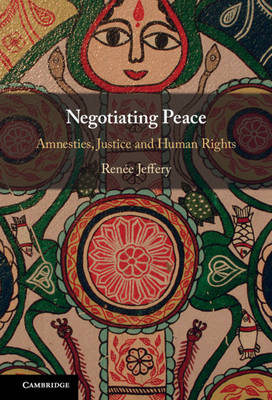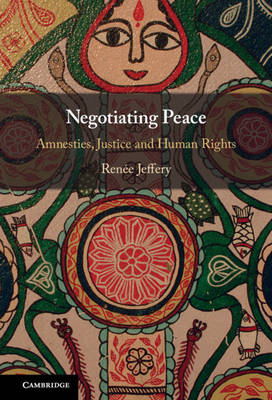
Bedankt voor het vertrouwen het afgelopen jaar! Om jou te bedanken bieden we GRATIS verzending (in België) aan op alles gedurende de hele maand januari.
- Afhalen na 1 uur in een winkel met voorraad
- In januari gratis thuislevering in België
- Ruim aanbod met 7 miljoen producten
Bedankt voor het vertrouwen het afgelopen jaar! Om jou te bedanken bieden we GRATIS verzending (in België) aan op alles gedurende de hele maand januari.
- Afhalen na 1 uur in een winkel met voorraad
- In januari gratis thuislevering in België
- Ruim aanbod met 7 miljoen producten
Zoeken
€ 198,95
+ 397 punten
Omschrijving
In the past two decades, peace negotiators around the world have increasingly accepted that granting amnesties for human rights violations is no longer an acceptable bargaining tool or incentive, even when the signing of a peace agreement is at stake. While many states that previously saw sweeping amnesties as integral to their peace processes now avoid amnesties for human rights violations, this anti-amnesty turn has been conspicuously absent in Asia. In Negotiating Peace: Amnesties, Justice and Human Rights Renée Jeffery examines why peace negotiators in Asia have resisted global anti-impunity measures more fervently and successfully than their counterparts around the world. Drawing on a new global dataset of 146 peace agreements (1980-2015) and with in-depth analysis of four key cases - Timor-Leste, Aceh Indonesia, Nepal and the Philippines - Jeffery uncovers the legal, political, economic and cultural reasons for the persistent popularity of amnesties in Asian peace processes.
Specificaties
Betrokkenen
- Auteur(s):
- Uitgeverij:
Inhoud
- Aantal bladzijden:
- 314
- Taal:
- Engels
Eigenschappen
- Productcode (EAN):
- 9781108838108
- Verschijningsdatum:
- 18/03/2021
- Uitvoering:
- Hardcover
- Formaat:
- Genaaid
- Afmetingen:
- 152 mm x 229 mm
- Gewicht:
- 589 g

Alleen bij Standaard Boekhandel
+ 397 punten op je klantenkaart van Standaard Boekhandel
Beoordelingen
We publiceren alleen reviews die voldoen aan de voorwaarden voor reviews. Bekijk onze voorwaarden voor reviews.









